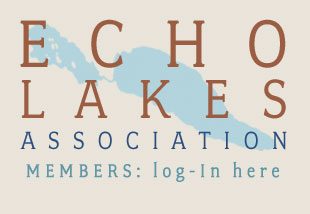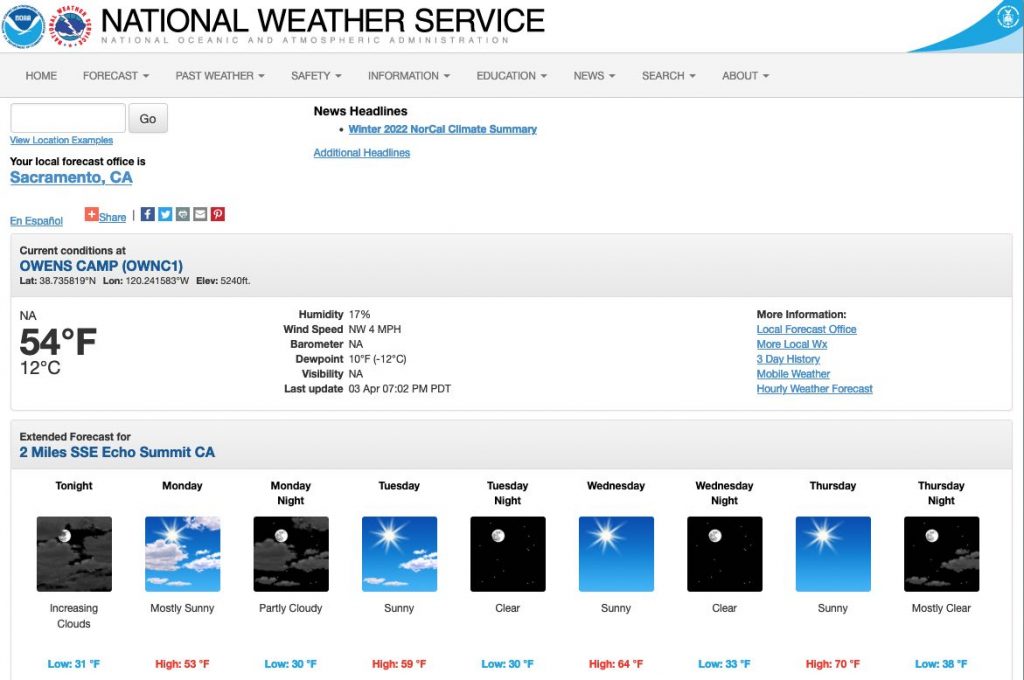Echo Chalet Meadow, July 6, 2024
- Bears have become habituated to humans; we need to make them afraid of us again. If you see bears near your cabin, haze them aggressively using air horns, rocks, water, and/or aiming for their hind quarters with a paintball gun.
- When sleeping indoors or outdoors, make sure there aren’t any food items or attractive scents there with you. Have an air horn at the ready and arrange chairs/paddles/other items at possible entry points in such a way that they’ll be knocked over by any intruding bear, alerting you to its presence. A dog would probably work as well, but…
- Unleashed dogs may antagonize bears and then run back to their people, bringing the angry bear with them and possibly sustaining injury themselves.
- Hike in groups and avoid dawn or dusk when bears are most active; keep dogs leashed and carry bear spray.
- If you find a bear in your cabin, get outside if possible but don’t block the bear’s exit route–it will want to leave the way it came in. Make lots of noise but don’t use bear spray indoors except as a last resort.
- Bear canisters can be used to store food and scented products, as long as the canister is left outside, away from the cabin, preferably tied to a tree or rock.
- Solar powered electric mats and fencing (installed close to cabin walls) have been okayed for use at Echo as long as they’re temporary. See CDFW Bear-Proofing Cabin Information Handout for a list of sources.
- When cleaning up after a cabin break-in, bear DNA can be collected to add to CDFW’s bear ID database:
- Wipe a damp cotton swab across nose or paw prints on windows, floors, or shelving.
- Collect hairs that may be stuck to window frames or glass shards.
- Gather cans or other items that the bear may have licked or chewed.
- Put all of these in a paper envelope or bag. Do not include bear poop!
- Write the following info on the front of the envelope or bag: date, time and location of collection, collector’s name and email (if you want to get results of DNA test).
- Give to a Chalet employee.
- A depredation permit may be applied for if a bear has caused documented and significant damage to life and/or property. The applicant must prove that they’ve done everything in their power to deter the bear and provide DNA samples if possible. If CDFW finds a dirty bbq, trash, pet food, bird feeders, etc. on site they will not issue a permit.
- Shooting a bear which is actively endangering human life, property, and/or pets is permitted as a last resort. 911 should be called immediately so that the carcass can be removed (may be problematic on the Upper Lake…) and a full investigation begun.
KEY CONTACTS
- Report a bear interaction and/or cabin break-in by calling the CDFW hotline 916-358-2917, or online using the Wildlife Incident Reporting (WIR) system at apps.wildlife.ca.gov/.Both are monitored daily.
- Alexia Ronning, CDFW Bear Biologist, is available Sunday through Thursday, 8am to 4pm at 916-767-3012 or at alexia.ronning@wildlife.ca.gov.
MORE INFORMATION


